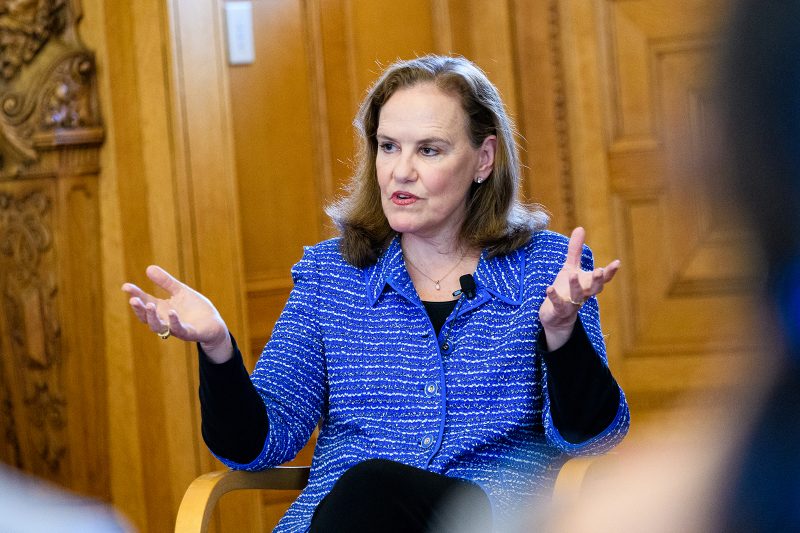On March 14, International Security Studies (ISS) hosted the discussion forum, “Challenges to World Order,” featuring Michèle Flournoy, former co-founder and chief executive officer of the Center for a New American Security and former Under Secretary of Defense for Policy under the Obama Administration.
The conversation was moderated by ISS Executive Director Ted Wittenstein, who kicked off the conversation by asking Flournoy to weigh in about the war in Ukraine.
Flournoy underscored the importance of showing unity in the face of Russian aggression and reestablishing the world order in the post-war era. The West must make authoritarian regimes pay a high price for violating international norms and infringing on the sovereignty of a free, independent country, she said.
“I think we will come out with a stronger, more unified NATO that has rediscovered its purpose, with a stronger posture in Europe,” Flournoy predicted.
When asked to speculate on Russian President Vladimir Putin’s objectives, Flournoy observed that Putin sees his legacy as reestablishing Russia as a world power and extending its sphere of influence to the former Soviet states, no matter the cost.
The Ukrainians’ fierce resistance and the Russian military’s lack of preparation should not have come as a surprise to Putin, Flournoy said, but it did.
“Eventually it will end up in a stalemate and eventually they’re going to have to negotiate a solution,” she said, due to the pressure on Putin from increasingly high sanctions and unhappy oligarchs.
Flournoy was also asked to comment on the future of China’s close alliance with Russia in the aftermath of the war in Ukraine.
“If this goes the way I think it’s going to go, which will be ultimately a strategic mistake for Russia and very costly, I think Xi [Jinping] will find a way to separate himself in some way…so as not to be branded a pariah alongside Putin,” she said.
Flournoy also fielded a variety of questions from the audience, including on the West’s response if Russia used chemical weapons; the expansion of NATO to include countries like Sweden and Finland; the stability of Putin’s regime; Russia’s cyber tactics to retaliate against sanctions; the dangers of overusing sanctions; and parallels with Latin America as well as with China and Taiwan.
